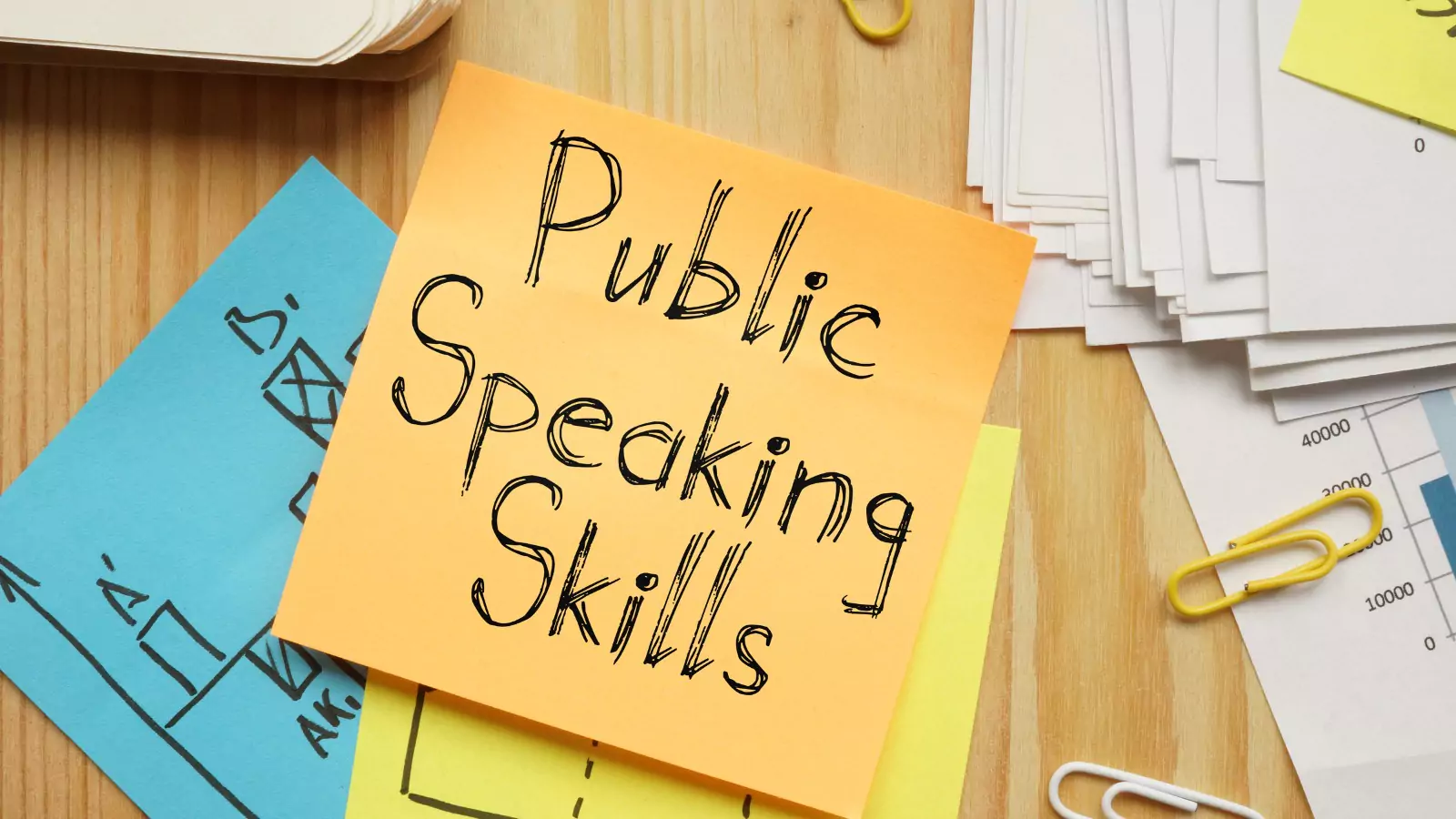How about you go on stage, start speaking with confidence, have good body language and show off your public speaking skills to everyone– captivating the audience with your words, and leaving a lasting impression with your powerful delivery?
Public speaking is an essential skill for students; it builds confidence, helps express their ideas effectively, and helps them succeed in life. Many students and working professionals lack communication skills and are afraid of going on stage. The idea of speaking in front of people makes them nervous and fearful.
The good news is that with the right techniques and consistent practice, anyone can start speaking with confidence. In this blog, we’ll explore the importance of public speaking and practical tips to improve public speaking skills for students.
Let’s discuss some of the best tips to improve your communication skills.
1. Practice Regularly
You must have heard it a million times that practice makes perfect, and yeah! It’s true. The best way to improve your public speaking skills is through practice. The more you practice, the better you’ll get at speaking. Here’s how to do it.
Speak in front of a mirror – This is one of the best practices you can do. It shows the flaws in your body language; how you stand and the gestures you make while speaking. When we speak in front of a mirror, our brain thinks that we are talking to an actual person, and we react in a way that we are actually dealing with a person. So, make sure you look confident while speaking.
Record yourself – When you listen to yourself, you identify your weak points, like your tone and delivery of speech. Recording allows you to improve communication skills.
Practice with friends or family – Getting feedback from others provides insight into how well you are communicating and how engaging your speech is.
Participate in school activities – Involvement in debates, elocution contests, and presentations provides real-world exposure to public speaking and builds confidence over time.
2. Overcome Stage Fear

We all have one common fear, and that is the fear of the stage. There’s something about speaking on stage that paralyses us. Stage fright is most common among people from all walks of life, but can be overcome with the below strategies:
Deep breaths – Taking deep breaths helps calm down our nervous system, which is very crucial for speaking in front of hundreds, if not thousands, of people.
Start Small – Don’t just hop into public speaking with a larger audience. Start with smaller audiences first and gradually move to larger ones.
Visualise – You must have heard about manifestation, what you focus on becomes your reality. Visualise yourself giving a successful speech. When you visualise something, your body reacts exactly the same as if it is happening right now. Visualising will boost your confidence.
Focus on the message – Focus on what message you want to convey to people and not how people perceive you.
3. Work on Clarity and Pronunciation
In order to improve your public speaking skills, you need to work on your speech. When you speak clearly, it means that your audience is getting your message properly, fulfilling the purpose of your speech.
To improve your speech clarity, you can follow these tips:
Speak slowly – When you speak slowly and articulate words properly, you get your message across efficiently, making everyone in the room understand what you are saying.
Avoid filters – We are not advising you to completely avoid using filler words like “um,” or “you know”, but try to make use of them as little as you can. Filler words have a purpose too, they make you sound like a human being and not a robot just reading out the script.
Record your speech – You can record and listen to your speeches to refine pronunciation.
Reading – Remember in our childhood, our fathers used to say, “read out loud while studying, as it helps your pronunciation”. That advice still pertains. Reading helps a lot. Read books aloud to improve fluency and diction, eventually helping in your public speaking skills.
4. Improve Body Language
To improve your public communication skills, along with your speech you need to work on other areas as well, like body language. Non-verbal communication plays a crucial role in public speaking. Follow the tips below for improving your communication skills:
Eye contact – Maintain eye contact with your audience. Not making eye contact gives out the impression to the other person that you are not confident and hiding something from them.
Gestures – Don’t be a stick just standing and speaking, use appropriate hand gestures to emphasise points. Making gestures while speaking makes the conversation interesting while keeping your audience engaged.
Stand tall – Avoid fidgeting, hunching forward, or any weird posture. Stand tall, this will make you appear more confident.
Smile – Keep a good smile on your face, it helps to engage with the audience naturally, as you seem more friendly.
5. Develop Strong Content

In order to improve your public speaking skills, you need to have a speech ready with proper articulation; you can’t just go and beat around the bush. A well-structured speech keeps the audience engaged. Here’s how you can structure your speech:
Captivate – Every good speech starts with a hook line that captivates the listeners. Make sure when you prepare your speech, you have a strong opening that grabs attention.
Stories – While you structure your speech, structure it in a good way with points and examples. And beyond that, if you have some stories to tell, then do add them in your speech, as there’s something about the stories that people love listening and relating to.
Wrap it up – At the end of your speech, write a conclusion that summarises everything you have been talking about so that people retain everything easily, making you an amazing speaker in their eyes who conveys his message properly.
Simple language – Speak in a way that even a 5th-grade student understands. Use simple and engaging language.
Other Tips To Improve Public Speaking Skills
Nobody likes a bland and monotonous speech. Try to add modulation in your speech lest to keep it dull. You can vary your pitch and volume for emphasis, adding pauses to let key points sink in. Along with that, use an enthusiastic tone to keep the audience engaged.
Ask for constructive feedback from friends and family. Feedback helps in improving communication skills. Moreover, you can join public speaking clubs or better yet, you can watch and learn from great speakers.
Conclusion
So in this blog, we learned how to improve your public speaking skills; you need to practice with dedication. By working on confidence, body language, and other public speaking tips like speaking with clarity and voice modulation, students can become effective communicators and start speaking with confidence.
Start small, practice regularly, and embrace every opportunity to speak. With time, public speaking will become second nature!
Read Also – How To Select Your University: What Really Matters?
Balance Moot Courts, Internships & Academics in Law School





